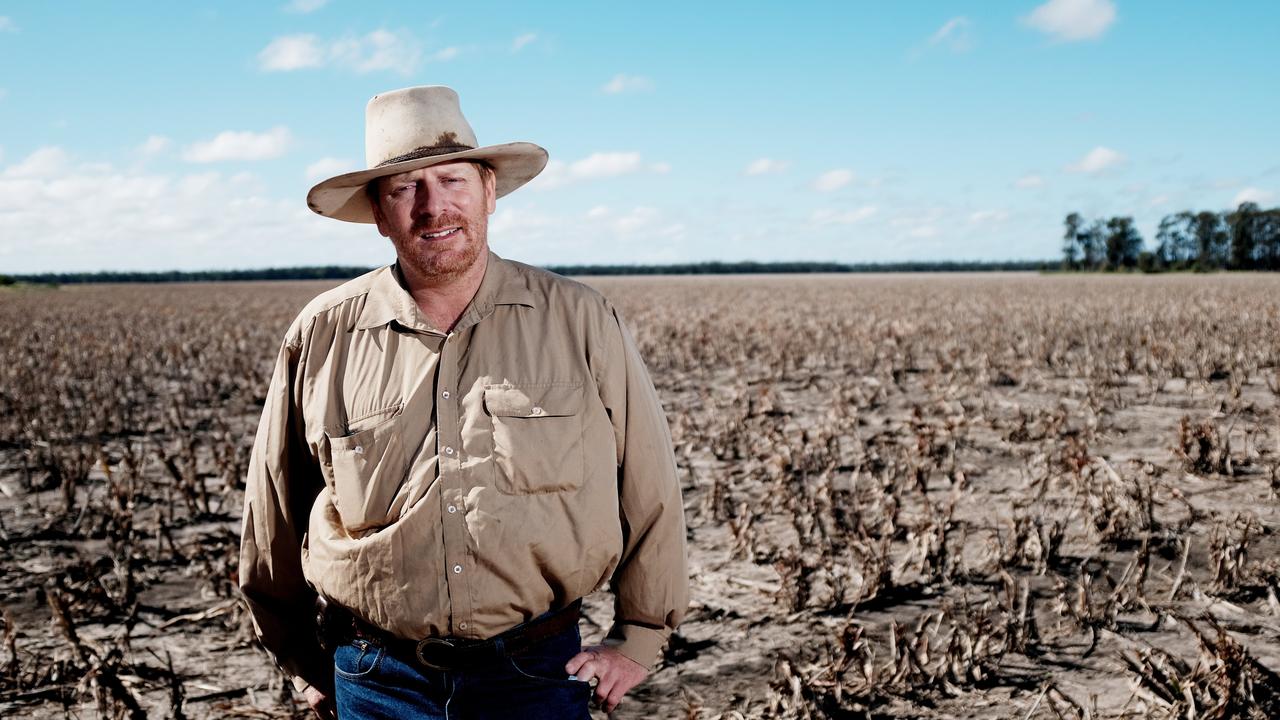Mix-n-match workforce in fight to save Qld’s ‘best crop in years’
One of Queensland’s best crops in years is at risk as border closures linked to Covid put the squeeze on worker availability just weeks out from harvest.
The best crop in half a decade is at risk for some Queensland farmers as Covid, as well as borders both state and international, put a squeeze on available workers with just weeks to go to harvest.
A mix of ex-military, university students and even retired farmers are being brought in to help with harvest.
A new ABARES Australian Crop Report forecast a 63 per cent spike in the state’s wheat, barley and chickpeas.
AgForce Grain president Brendan Taylor said prime weather conditions and solid rainfall had set farmers up for “the most significant crop since 2016” with harvest to begin in the next three to four weeks.

“Everyone is champing at the bit waiting for the crops to mature,” he said.
But he said it was ”the million-dollar question” if the workforce would be available to make the most of it.
While agricultural workers are classified as essential workers and will be able to cross state borders, they still require exemptions and paperwork which take time to process.
“It’s not ideal (circumstances). We would like to see absolutely open borders, but the primary objective is to get the harvest done and minimise everyone’s risk of Covid getting into Queensland,” Mr Taylor said.
The supply of backpacker workers has also all but dried up, while the new agricultural visa for southeast Asia is yet to come into play.
Mr Taylor said producers had had to be creative in sourcing staff, including reaching out through university students, retired farmers networks as well as Operation Grain Harvest Assist, a Facebook page run by Grain Producers Australia seeking to link farmers with defence veterans looking for work.

Agriculture Minister David Littleproud said there had been more than 3000 Pacific Island and seasonal workers allowed to enter Queensland through the on-farm quarantine scheme, though more than 27,000 were pre-approved to come to Australia if states were to allow more in.
“Some parts of the country are still in drought, but the majority of the agricultural sector is experiencing good seasons and that’s putting greater pressure on the workforce,” Mr Littleproud said.
“In horticulture alone we’re expecting a 30,000 worker shortage by February.”
He said while Queensland had not signed up to the national agricultural workers code, which allowed cross-border exemptions for farm workers, it had its own protocols which had been working so far.
“At the moment it seems to be working, but not signing up to the code gives us some concerns that they may deviate from it,” Mr Littleproud said.



